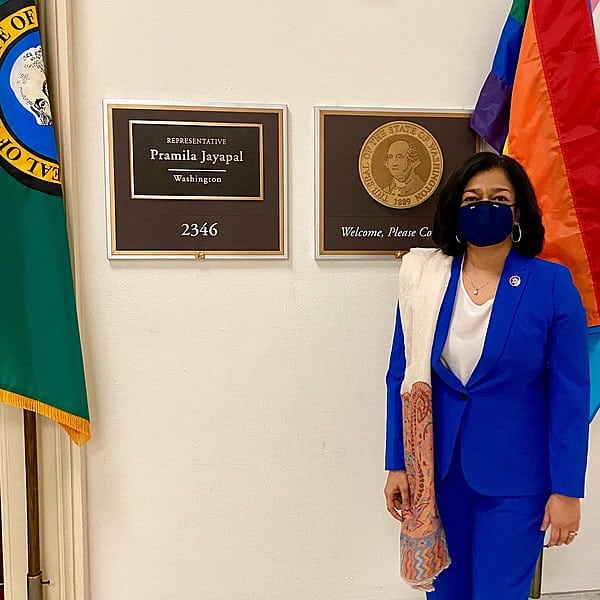
Seniors and their loved ones may be alarmed to learn that there is an insidious, but largely unpublicized effort underway to gradually privatize Medicare. According to media reports, some traditional Medicare patients are now being placed in for-profit managed care plans without even knowing, thanks to a Trump administration policy that is still in effect. Under this pilot program, called “Direct Contracting,” private companies are supervising selected Medicare patients’ care, even though the beneficiaries signed up for traditional Medicare.
“The experiment is likely to make traditional Medicare a gold-mine for for-profit companies, who will make money for executives and shareholders by establishing complex administrative rules that undermine access to care and by imposing high out-of-pocket costs that discourage care.” – Common Dreams, 3/8/21
Up to now, traditional Medicare has been administered exclusively by the government, with no profit motive – unlike the Medicare Advantage program, which is run by private, corporate interests. The Direct Contracting model is a serious, but lesser-known move toward privatizing the entire Medicare program – something the majority of the public and seniors’ advocates fiercely oppose. With good reason.
“Instead of paying doctors and hospitals directly for seniors’ care, Medicare gives these middlemen (called Direct Contracting Entities, or DCEs) a monthly payment to cover a defined portion of each seniors’ medical expenses. DCEs are then allowed to keep what they don’t pay for in health services, a dangerous financial incentive to restrict and ration seniors’ care.” – Rep. Pramila Jayapal, The Hill, 12/9/21
“The lure of Direct Contracting for these companies is potential profits. The limits on the amount of money a Direct Contracting entity can keep that’s not used for a patient’s medical needs is significantly more generous than those imposed by Medicare Advantage.” – Helaine Olen, Washington Post, 12/13/21
Worse yet, the Direct Contractors needn’t have any experience in the health care field. Venture capital and private equity firms (some with ties to former Trump administration officials) are among the corporate concerns “who are lined up like pigs at the trough to get their hands on taxpayer dollars,” according to Helaine Olen of The Washington Post. In fact, Congress has no oversight authority over the selection of direct contractors in the pilot program.
“This should be a huge red flag for taxpayers and anyone concerned about funding Medicare for future generations,” says Rep. Japyal, who sits on the House Budget Committee.
Privatized plans generally cost the Medicare program more money and can erect barriers to proper care, in the form of higher out-of-pocket costs, denied claims, and limited networks of health care providers. In other words, patients suffer while the private plans make billions.
Medicare Advantage plans have also been caught overcharging the program (i.e., American taxpayers) and using other deceptive tactics. “The incentive is to deny as much care as possible,” health advocate Diane Archer told The Intercept. “It’s also to delay as much care as possible.”
The Direct Contracting model has different rules than Medicare Advantage, but the pilot program clearly incentivizes profit over patient care.
“While Traditional Medicare spends an impressive 98 percent of its budget on patient care, Direct Contracting Entities only spends 60 percent of our tax dollars on patient care — keeping up to 40% of revenues for their own profit and overhead.” – Common Dreams, 3/8/21
Seniors’ advocates and champions in Congress are pushing-back on the Direct Contracting program, insisting that the Biden administration cancel it. According to Rep. Jayapal, advocates have met with Health and Human Services Secretary Xavier Becerra to make their objections known, and have demanded that Congress hold hearings on the program.

Rep. Pramila Jayapal calls the Trump-era policy a” dangerous financial incentive to restrict and ration seniors’ care.”
Four Democratic members of Congress sent Becerra a letter last May, requesting that the Direct Contracting program be frozen because it funnels patients into “Medicare Advantage-like plans, (which) not only eliminates beneficiary choice, but also erects more barriers and provides fewer consumer protections for beneficiaries.”
Olen reports in The Post that the Biden administration put a “temporary stop” on “an even more egregious version of the (pilot) program.” But “CMS, HHS, and ultimately, the White House are continuing to press ahead with Direct Contracting, even though they could end it if they choose.”
Despite journalists’ efforts to shine light on the program and objections from members of Congress and the advocacy community, the Direct Contracting program – a vestige of the Trump administration that favored profits over patients – proceeds unimpeded.


